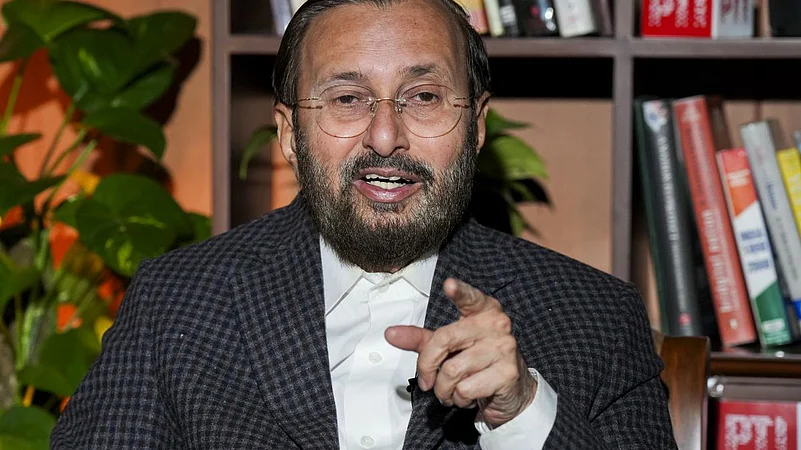The BJP on Tuesday accused Kerala's ruling LDF and opposition UDF of engaging in "appeasement politics" by opposing the Centre's proposed amendments to the Waqf law, an issue that has gained prominence during the state's ongoing bypoll campaign.
LDF, UDF Engaging In 'Appeasement Politics' By Opposing Waqf Law Amendment: BJP
In a press statement, former union minister and BJP Kerala in-charge Prakash Javadekar asserted that the BJP would not allow any government to appease extremists. He demanded that issues surrounding Waqf Board claims, particularly in areas like Munambam in Ernakulam district, be resolved to provide justice to innocent and vulnerable residents.

In a press statement, former union minister and BJP Kerala in-charge Prakash Javadekar asserted that the BJP would not allow any government to appease extremists. He demanded that issues surrounding Waqf Board claims, particularly in areas like Munambam in Ernakulam district, be resolved to provide justice to innocent and vulnerable residents.
The CPI(M), which heads the LDF, stated that neither the party nor the government has any intention of evicting residents of Munambam village, where the Waqf Board has claimed land.
CPI(M) state secretary M V Govindan alleged that right-wing groups were attempting to promote extreme anti-Muslim and pro-BJP sentiments in the area. He added that the government would hold a meeting of all stakeholders on November 16 to address the issue.
Meanwhile, the Congress-led UDF accused the Kerala government and the state Waqf Board of being the "real villains" in creating the Munambam issue, alleging it was intended to create space for the BJP and foster religious division.
Leader of the Opposition V D Satheesan urged the state government and the Waqf Board to reconsider their decisions and called for an all-party meeting to resolve the matter.
He observed that "the land belongs to the people living there, and they should be given a clear title."
Both the CPI(M)-led LDF and the Congress-led UDF have faced criticism from various groups, including the Catholic Church, for failing to address the concerns of Munambam residents.
In his statement, Javadekar noted that even before the Waqf (Amendment) Bill was discussed or voted on in Parliament, the UDF and LDF passed a unanimous resolution in the Kerala Assembly opposing it. He explained that the Bill is currently with a Joint Parliamentary Committee, but the UDF and LDF have already opposed the amendments, aligning with the Waqf Board.
"How can there be two laws in a country? If there’s a property dispute involving a temple, gurdwara, or church, you can approach the courts. But if it involves Waqf land, you cannot," Javadekar remarked.
He accused the LDF and UDF of "double standards" and "appeasing extremists," alleging that they have remained silent on attacks on Hindus in Bangladesh, a temple in Canada, or on Israel, and continue to oppose the Citizenship Amendment Act (CAA).
Javadekar also demanded that the Kerala government disclose the extent of Waqf land in the state and specify the amount of government, private, and agricultural land claimed by the Waqf Board.
The senior BJP leader emphasised that this issue is not about Hindus versus Muslims but rather a conflict between extremists and the general public. He described the "one-sidedness of the law" and the "biased stance" of the LDF and UDF as "concerning."
There is also growing discontent among the Christian community regarding the LDF and UDF's stance on the Waqf (Amendment) Bill, 2024, introduced by the BJP-led Centre. Supporting the Bill, the Church has alleged that numerous properties owned by Christian families for generations in villages like Cherai and Munambam in Ernakulam district have been unlawfully claimed by the Waqf Board under provisions in the existing Act.
- Previous StoryManipur's Kuki-Zo MLAs Call For End To 'State-Sponsored' Violence Through 'Silent' Protest
- Next Story

















